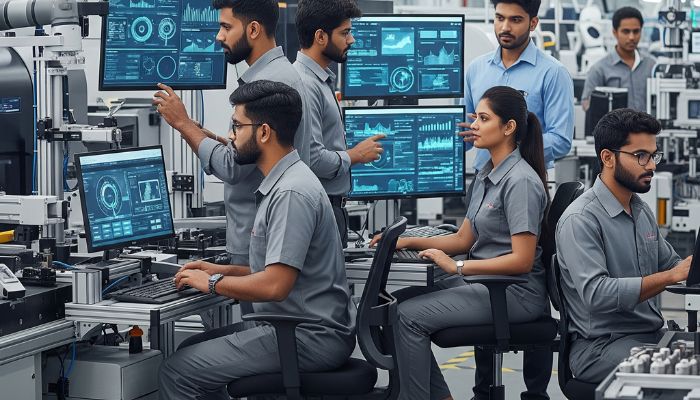Rituparna Chakraborty, Executive VP & Co-Founder, TeamLease talks about how Covid might change the workplace scenario forever. Edited excerpts from her interview to ET Now’s Tamanna Inamdar:
Tamanna Inamdar: Back-to-office deadlines are being extended further even as people get sick of working from home…
Rituparna Chakraborty: One thing the pandemic has taught us is that we should not make sensational forecasts about anything. At the moment, there is a sense of extreme fatigue about working from home amongst most people. There is a reason why a workplace is a workplace and home is home. This convergence is not really mentally fulfilling for many people.
From the infrastructure and capability perspective, most organisations have the ability to do remote work. But it is slowly becoming apparent that it is not good from a social capital perspective. There has been a massive erosion of non-cognitive elements which are so much required for organisations to grow, to innovate, to collaborate.
Most organisations are still not out of the woods, and so are caught between the need for investing in social capital as well the need for keeping employees safe. They don’t want to take a decision which they may not be able to overturn when the need arises. It is a situation where nobody is able to commit.
Hence, my hunch is that organisations will continue to take the hybrid approach. They will welcome back whoever wants to come back to the workplace. However, they will give them the option of choosing to work from home maybe two days a week, maybe one-and-a-half days a week, maybe three days a week.
I think most of corporate India can afford to go with this model. Of course, a large part of India still needs to work from their workplaces. Almost 80-85% of the Indian workforce has to work on site or on ground, or are outbound in nature. But those who can afford are gearing more and more towards a hybrid, open, flexible model. It’s like: Workplaces are open, walk in if you feel like.
From a company’s perspective, how does this work out? Do you rent a big office and keep empty seats for everyone in case everyone wants to come in? What of the impact on costs?
They will definitely be a recalibration in terms of office spaces — things like how much to retain and how much to let go of. If you are investing in a hybrid model, no matter how deep your pockets are, it just does not make any sense to keep maintaining huge infrastructure on an ongoing basis and have empty seats.
What we will see is that organisations will move to better scheduling of employees coming to office. There will be rotations.
Also, if the purpose of coming to office is more of collaboration, bonding, team work, catch-ups, then the office infrastructure is also likely to change. You will see more breakout rooms rather than spaces assigned for cubicles or work stations.
I do believe that office designs will undergo a significant change in the days to come. It essentially would mean that organisations will make optimal plans around real estate, around all kinds of costs that are currently being incurred in terms of maintaining infra. They will not do away completely with offices, but they definitely will run with much more optimised spaces.
There is also a possibility that if many of their employees — depending upon sectors and functions — are going to work remotely, then some of the offices will move away from the cities and closer to some of the hubs where the talents actually reside. You might see that organisations will reduce office space in Bengaluru and have smaller places in some of the middle-sized cities, maybe in some parts of Kerala or Tamil Nadu in the South or in Nagpur in the North.
Right now it is very concentrated around metros which are supposed to be the job magnets. Companies may now have smaller offices where people can just come and chat and have get-togethers and things like that. These are some of the possibilities that we should look out for.
Disclaimer: This interview was first published on The Economic Times. No changes to the content has been made.






